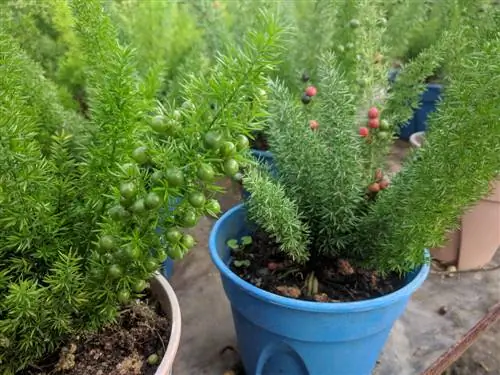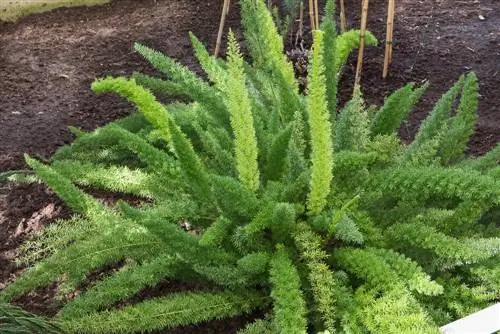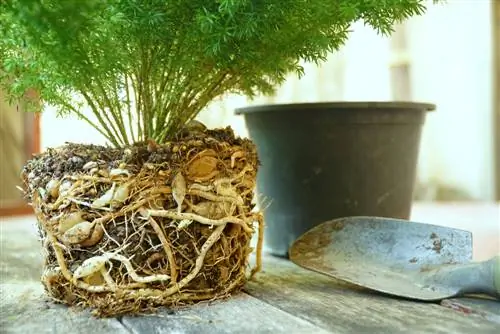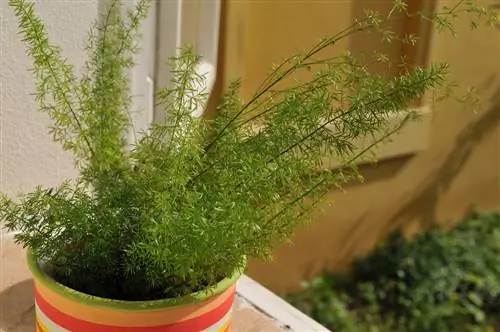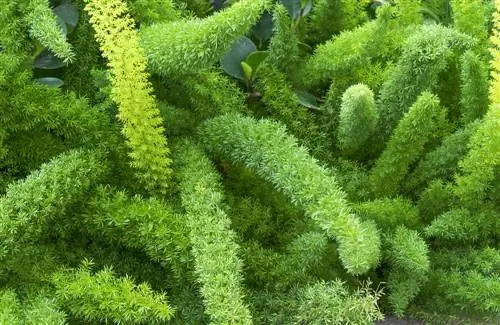- Author admin leonars@hobbygardeners.com.
- Public 2023-12-16 16:46.
- Last modified 2025-01-23 11:22.
Ornamental asparagus is an undemanding and relatively easy-care green plant. Because of its beautifully shaped leaves, Asparagus densiflorus is also extremely popular as a cut and binding green. In this article you will find important details regarding the toxicity of this asparagus plant, which is found in many households.
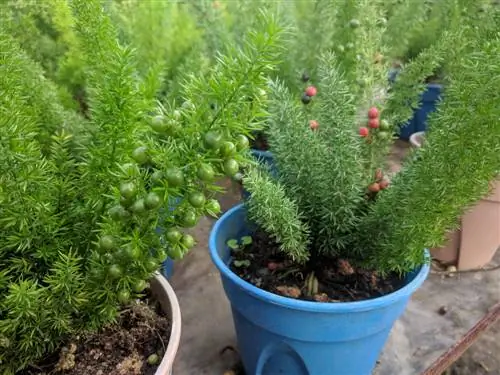
Is ornamental asparagus poisonous?
The ornamental asparagus (Asparagus densiflorus) is partly poisonous because its small red berries contain toxins. However, the leaves and stems are non-toxic. If the berries are consumed, symptoms of poisoning such as nausea, vomiting and dizziness can occur.
The plant characteristics
If you receive a potted plant or a bouquet of flowers as a gift, you often don't even know what plant it is. You can recognize ornamental asparagus by these characteristics:
- Very delicate foliage.
- Thorny leaf spur.
- If the site conditions are optimal, the plant produces tiny, white individual flowers.
- After flowering, small red berries appear.
- The growth is more or less upright. The shoots can also grow overhanging.
- Bulb-shaped thickened root.
Is Asparagus densiflorus poisonous?
The ornamental asparagus is unfortunately one of the poisonous houseplants. However, not all parts of the plant, only the small berries, contain toxins. The leaves and stems, on the other hand, are non-toxic and therefore harmless to pets and children who may snack on the leaves.
However, the toxicity of the berries should not be underestimated. If people or animals eat them, symptoms of poisoning such as:
- Nausea,
- Vomiting,
- Stomach pain,
- Headache,
- Dizziness,
- general malaise,
come.
Therefore, make sure to position the plant so that children or pets cannot get to the berries. House cats in particular enjoy playing with the small, red balls. However, when rolling through the apartment, these can burst open and the cat will lick up the juice.
If you notice the above-mentioned symptoms in a person or your pet and you are caring for an ornamental asparagus that is currently producing berries, it is advisable to consult a doctor or veterinarian immediately.
Tip
To prevent symptoms of poisoning, you can cut off individual flowering fronds. If the plant has already formed berries, you should pick them off and destroy them. Be sure to wear gloves when doing this work.

